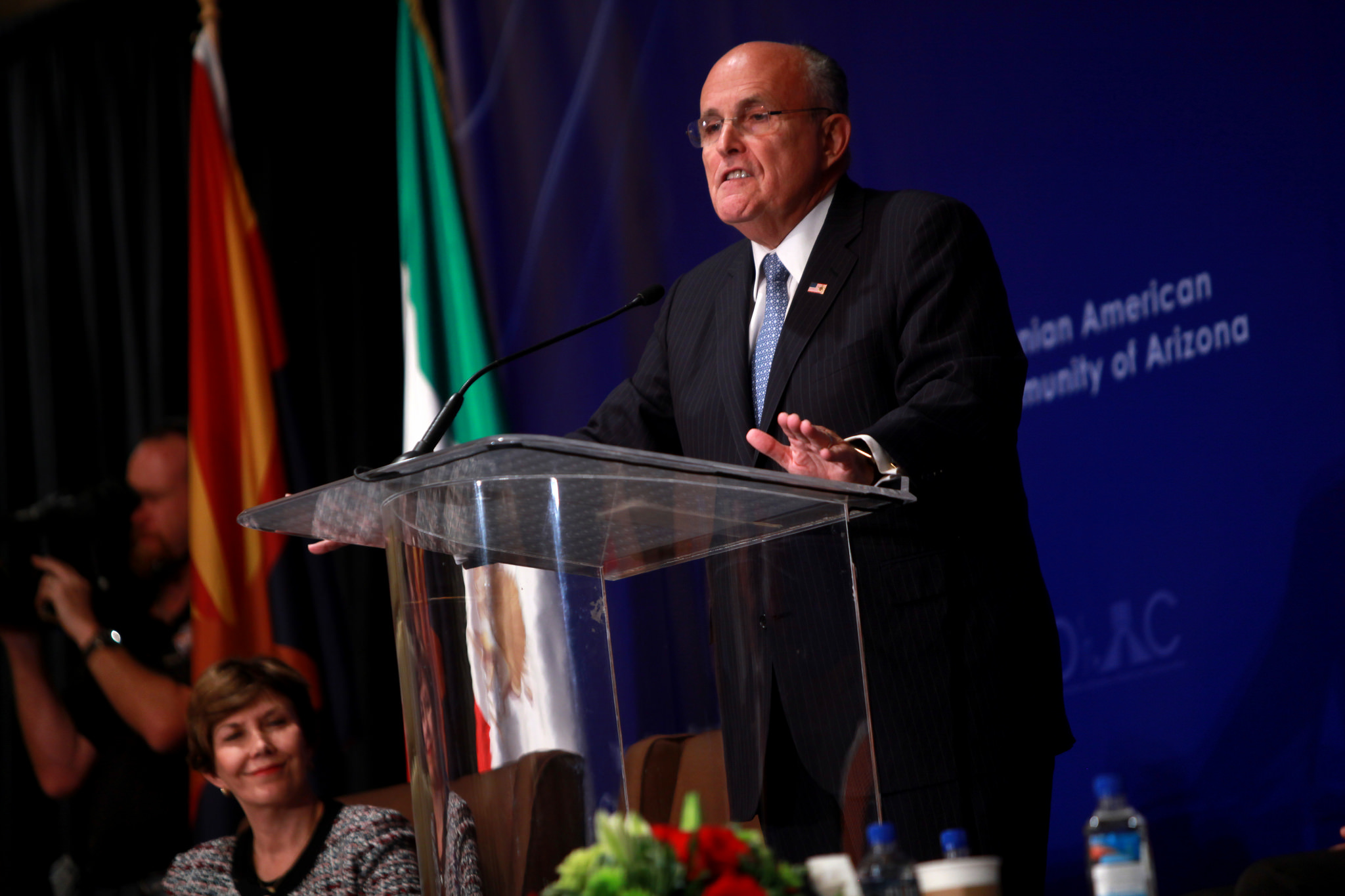AFRICA
Stanford Rapist Provokes Public Outrage
In modern society, the female power movement is on the rise. The female form is being celebrated in all of its glory, and rape culture is being met with extremely vocal opposition by a screaming horde of both feminists, and quite frankly, all people with a common sense of decency. One recent case is provoking extreme outrage.
Over a year ago, in January 2015, Brock Turner raped an unconscious (and therefore unconsenting) woman. He was seen by two eyewitnesses, who physically forced him off of the victim, chased him down when he ran away, and held him until police officers arrived. When the issue came to court, Judge Aaron Persky gave Turner only 6 months in jail for fear of being “unnecessarily harsh”. His rationale? “A prison sentence would have a severe impact on him … I think he will not be a danger to others.”
Before a jury, Brock Turner was convicted on three counts – assault with intent to commit rape of an unconscious person, penetration of an intoxicated person with a foreign object, and penetration of an unconscious person with a foreign object. Santa Clara District Attorney Jeff Rosen has publicly replied to Perksy’s decision with unabashed disgust. “The punishment does not fit the crime … The predatory offender has failed to take responsibility, failed to show remorse and failed to tell the truth. The sentence does not factor in the true seriousness of this sexual assault, or the victim’s ongoing trauma.” Rosen is also vocally outraged by the fact that the convicted has yet to apologize, or take any sort of ownership or responsibility for his actions. “To this day, the defendant denies what he did.”
The victim of this heinous crime, who remains nameless, seemingly went ignored in her testimony. She offered an extremely eloquent statement to the court, and it had little impact on Judge Persky’s decision.
“I thought there’s no way this is going to trial; there were witnesses, there was dirt in my body, he ran but was caught. He’s going to settle, formally apologize, and we will both move on. Instead, I was told he hired a powerful attorney, expert witnesses, private investigators who were going to try and find details about my personal life to use against me, find loopholes in my story to invalidate me and my sister, in order to show that this sexual assault was in fact a misunderstanding. That he was going to go to any length to convince the world he had simply been confused. … You ran because you said you felt scared. I argue that you were scared because you’d be caught, not because you were scared of two terrifying Swedish grad students … You were caught red handed, with no explanation … When the policeman arrived and interviewed the evil Swede who tackled you, he was crying so hard he couldn’t speak because of what he’d seen.”
Persky’s sentence has been widely noted as being blatantly lenient, and it has sparked up a social conversation on white privilege. Had Brock Turner been black, would he have gotten off so easy? Had he not been a Stanford athlete, would he have been incarcerated for the full recommended six years? It wasn’t until this past Monday, June 7, that Turner’s mugshot was even released to the public. Up until this week – a full fifteen months after his arrest – a Google Image search of Brock Turner’s name would result in a smiling school photo.
Since Aaron Persky’s controversial decision, a petition was generated on Change.org calling for his removal from office. The 12,000 men and women who have digitally signed the document seem to believe that if the Judge is capable of coming to this conclusion, he is unfit to remain in any sort of power.
The anger of the public has yet to cease. The pot was stirred even further when a letter from Brock Turner’s father – described as “impossibly offensive” – surfaced on Sunday, June 6. The letter offered an explanation for why Turner deserved a probation rather than time in jail. He belittled the weight of his son’s doings, calling it “20 minutes of action”. In his writing, he never once mentions the victim of his son’s actions. He merely turns the tables to make it appear as though Brock is the one deserving of pity. “His life will never be the one that he dreamed about and worked so hard to achieve,” the father, Dan Turner, wrote. “He will never be his happy go lucky self with that easy going personality and welcoming smile.” He reminded his readers that his son is now a registered sex offender, a label that will follow him for the rest of his life. He blames Brock Turner’s brutal sexual assault on Stanford’s party culture, claiming that his son fell victim to the evils of alcohol rather than his own twisted agenda. Here is an excerpt from the outrageous writing:
“First of all, let me say that Brock is absolutely devastated by the events of January 17th and 18th 2015. He would do anything to turn back the hands of time and have that night to do over again … I can tell you that he is truly sorry for what occurred that night and for all the pain and suffering that it has caused for all those involved and impacted by that night … His every waking minute is consumed with worry, anxiety, fear, and depression. You can see this in his face, the way he walks, his weakened voice, his lack of appetite … Now he barely consumes any food and eats only to exist.”
A letter with an opposing voice has been circulating as well. The unnamed victim wrote beautifully about the unfortunate happenings of that January night – District Attorney Rosen has noted that “what has helped to create such national attention in this case is the eloquence of the victim … Never in my 20 years as a prosecutor have I seen a more eloquent victim statement. [It has] come to represent the truth of thousands of sexual assault victims have experienced as well.”
“Sometimes I think, if I hadn’t gone, then this never would’ve happened. But then I realized, it would have happened, just to somebody else. You were about to enter four years of access to drunk girls and parties, and if this is the foot you started off on, then it is right you did not continue … You do not get to shrug your shoulders and be confused anymore. You have been convicted of violating me with malicious intent, and all you can admit to is consuming alcohol. Do not talk about the sad way your life was upturned because alcohol made you do bad things. … [I] let my guard down, and drank liquor too fast not factoring in that my tolerance had significantly lowered since college. The next thing I remember I was in a gurney in a hallway … A deputy explained I had been assaulted … When I was finally allowed to use the restroom, I pulled down the hospital pants they had given me, went to pull down my underwear, and felt nothing.”
The horrific actions of Brock Turner and the response of his victim has started a worldwide conversation about today’s unfortunate rape culture. The mere fact that Brock’s father wrote a letter painting his son as a victim of the happenings of every college campus in America shows that something has to change. Little boys have to be taught from a young age to respect women. As one Twitter user, @AmyJoRyan, put it, there are plenty of better things to do with 20 minutes – “teach your son women are people, teach your son rape is bad, [and] teach your son human decency.”
AFRICA
The UK paid Rwanda an additional $126 million for the contested migrant plan.
As the tab for Britain’s controversial proposal to relocate asylum seekers to the East African nation continues to increase, the United Kingdom paid Rwanda an extra 100 million pounds ($126 million) in April. This was in addition to the 140 million pounds it had already provided Rwanda.
Even though the Rwanda project is at the core of the policy that British Prime Minister Rishi Sunak is employing to discourage illegal immigration, there have been no individuals sent to Rwanda as of yet due to legal challenges that have taken place since the initiative was introduced in 2022.
After Sunak’s immigration minister resigned this week, the polarizing policy is now regarded as a danger to Sunak’s leadership, which is anticipated to be challenged in the election that will take place the following year.
According to a letter that the British Ministry of the Interior issued on Thursday, the United Kingdom plans to give Rwanda fifty million pounds in addition to the 240 million pounds it has already provided to the East African nation.
The opposition Labour Party criticized the disclosures regarding the rising cost of a scheme that legal experts warned could collapse. Some parliamentarians within Sunak’s party are also expected to express their disapproval of the idea.
A statement by Yvette Cooper, the shadow interior minister for the Labour Party, on social networking site X, said, “Britain cannot afford more of this costly Tory chaos and farce.”
On Friday, however, the newly appointed minister for legal migration, Tom Pursglove, explained what he called the “investment” of 240 million pounds. He stated that once the Rwanda policy was operational, it would reduce the money spent on hosting asylum-seekers in the United Kingdom.
“When you consider that we are unacceptably spending 8 million pounds a day in the asylum system at the moment, it is a key part of our strategy to bring those costs down,” Pursglove explained to Sky News.
Pursglove stated that the money donated to Rwanda would assist in the country’s economic growth and help get the asylum relationship with the United Kingdom up and running.
There was no connection between the money sent to Rwanda and the treaty that the two nations signed on Tuesday, according to the letter from the Ministry of the Interior.
The treaty aims to respond to a ruling by the Supreme Court of the United Kingdom, which stated that the deportation plan would contravene local laws based on international human rights standards.
“The Government of Rwanda did not ask for any payment in order for a Treaty to be signed, nor was any offered,” according to the correspondence.
After Robert Jenrick resigned from his position as immigration minister on Wednesday, Sunak made a plea to fellow Conservative parliamentarians on Thursday to come together in support of his Rwanda proposal. He stated that the emergency legislation the government had drafted to get the scheme up and running did not go far enough.
Africa
UK interior minister travels to Rwanda to resurrect asylum plan.
On Tuesday, the Minister of the Interior of the United Kingdom, James Cleverly, came to Rwanda to sign a new treaty. This was done to circumvent a court judgment that blocked the government’s contentious policy of transferring asylum seekers to the East African nation.
The Rwandan plan is at the core of the government’s attempt to reduce migration, and it is being closely monitored by other nations who are considered to be considering policies that are comparable to Rwanda’s.
In a decision handed down a month ago, the Supreme Court of the United Kingdom stated that such a move would violate international human rights norms embedded in domestic legislation.
Following the decision, the United Kingdom has been making efforts to revise its agreement with Rwanda to incorporate a legally binding treaty that guarantees Rwanda would not remove asylum seekers brought there by the United Kingdom. This is one of the primary concerns of the court.
Several attorneys and charitable organizations have said that it is highly improbable that deportation flights will begin before the election. With a lead of more than ten percentage points in the polls, the opposition Labour Party intends to abandon the Rwanda policy if it is victorious.
A meeting between Cleverly, who arrived in Kigali, the capital of Rwanda, on Tuesday morning, and Vincent Biruta, the country’s Minister of Foreign Affairs, is scheduled to take place to sign the agreement.
“Rwanda cares deeply about the rights of refugees, and I look forward to meeting with counterparts to sign this agreement and further discuss how we work together to tackle the global challenge of illegal migration,” Cleverly says.
The United Kingdom aims to transfer thousands of asylum seekers who came to its beaches without authorization to Rwanda under the plan that was agreed upon the previous year. This discourages migrants from crossing the Channel from Europe in tiny boats.
In exchange, Rwanda has been given an initial payment of 140 million pounds, equivalent to 180 million dollars, along with the promise of additional funds to cover the costs of housing and medical treatment for any deported persons.
THE PRESSURE
A great deal of pressure is being put on Prime Minister Rishi Sunak to reduce net migration, which reached a record high of 745 thousand people in the previous year, with the vast majority of migrants entering through legal channels.
“Stop the boats” is one of the five goals that Sunak has set for his government. The influx of asylum seekers who pay people smugglers for their crossings of the Channel, which frequently take place in boats that are overloaded and not seaworthy, is one of the aims that Sunak has set.
The Supreme Court determined that the Rwanda plan should not be implemented because there was a possibility that refugees who were deported would have their claims incorrectly evaluated or that they would be sent back to their country of origin to suffer persecution.
In the latter part of this week, it is anticipated that the new treaty will be followed by the release of legislation declaring Rwanda a so-called safe nation. This law is intended to prevent legal challenges against the planned deportation flights.
Despite this, this will probably result in a fresh set of political and legal difficulties.
An immigration attorney at Harbottle & Lewis named Sarah Gogan stated that the government’s policy will be challenged due to Rwanda’s history of violations of human rights provisions.
“Rwanda is an unsafe country and this is not a quick fix,” added the politician. “You cannot in a matter of weeks or months reform a country and turn it into one with an impartial judiciary and administrative culture.”
Another “gimmick” was what Yvette Cooper, the spokesperson for the Labour Party’s home affairs department, called the most recent measures proposed by the administration.
Whether or not to design the law in a way that would avoid subsequent legal challenges is still up for debate by the administration.
Several members of the Conservative Party in parliament are putting pressure on the government to incorporate a “notwithstanding” clause into Rwanda’s policy. This clause would disapprove the domestic and international human rights commitments of the United Kingdom regarding Rwanda.
However, some politicians within the ruling party, such as Robert Buckland, have stated that such a move would be “foolish” and undermine the Good Friday Agreement, which is primarily responsible for ending three decades of carnage in Northern Ireland. This is because the European Convention on Human Rights supports the treaty.
Africa
Madagascar leader wins presidential vote, constitutional court says
On Friday, the High Constitutional Court of Madagascar certified Andry Rajoelina, the current President of Madagascar, to be the victor of the election a month ago, essentially granting him a third term in office.
Following the dismissal of several challenges submitted against the preliminary results by the electoral board, the court said that Rajoelina collected 58.96% of the votes that were cast.
Florent Rakotoarisoa, the chairman of the High constitutional court, stated that “Andry Rajoelina is elected as the president of the republic of Madagascar and is taking his functions as soon as the swearing (is conducted) comes to an end.”
The rejected challenge was submitted by the politician Siteny Randrianasoloniaiko, who received 14.39% of the vote, according to the court. This was one of the challenges that was denied.
Ten of the thirteen candidates chose not to participate in the election; nevertheless, their names were already on the ballot, so they could still divide the remaining votes. The court reported that the turnout was 46.35 percent.
The election on November 16 was preceded by weeks of demonstrations, during which the opposition accused Rajoelina of having fostered conditions that were unjust to the election.
The charges that the vote was rigged have been refuted by Rajoelina, and the army has issued a warning against any attempts to destabilize the country.
As far as the opposition is concerned, the voter turnout for the election was the lowest it has ever been in the country’s history.
Hajo Andrianainarivelo, a former minister who was one of the candidates who chose to abstain from voting, has committed to fight against what he has described as a lack of respect for the rules of the state and the tyranny of the people.
“The popular fight begins now,” he declared on Thursday referring to the ongoing conflict.
Rajoelina, now 49 years old, initially won power in a coup in 2009. After resigning from his position as the head of a transitional authority in 2014, he went on to win another election in 2018 and regain his position as president.
-

 Geopolitics & Foreign Policy2 months ago
Geopolitics & Foreign Policy2 months agoTurkey’s Erdogan says he may visit Egypt soon, discuss Gaza patients -media.
-

 Europe3 months ago
Europe3 months agoRussia’s Shoigu accuses the West of seeking to expand the Ukraine war to the Asia-Pacific.
-

 Geopolitics & Foreign Policy2 months ago
Geopolitics & Foreign Policy2 months agoCeasefire takes hold in Gaza ahead of hostage release; aid enters enclave.
-

 Geopolitics & Foreign Policy2 months ago
Geopolitics & Foreign Policy2 months agoRussia deploys new nuclear missile in Kaluga region – RIA
-

 America4 months ago
America4 months agoRepublican US House to hold first Biden impeachment inquiry hearing
-

 Geopolitics & Foreign Policy2 months ago
Geopolitics & Foreign Policy2 months agoChina’s military: US Navy ship ‘illegally’ entered territorial waters
-

 Europe3 months ago
Europe3 months agoZelenskiy, at NATO HQ, asks for weapons to face winter of ‘terror’
-

 Agriculture4 months ago
Agriculture4 months agoIAEA, Japan agree on continuous safety review of Fukushima water












